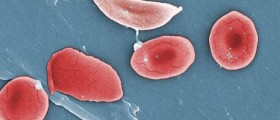
Kidneys perform a multitude of functions that are vital to our body’s health. They are responsible for urine production, waste disposal, blood filtration and the reduction of bodily toxins. Kidneys are also vital with regard to the controlling of blood pressure and the maintenance of mineral balance in our bodies. Chronic kidney failure occurs gradually over months or even years, and damage that occurs can be permanent. Kidney failure can lead to other problems, including anemia, hypertension and bone disease.
Kidney disease is subdivided into five stages of severity. Stage 5 of the disease is also known as kidney failure, end stage kidney disease or end stage renal disease. At this point of the disease, the kidney will have lost nearly all of its primary functions. This can lead to serious consequences, and problems such as water retention and waste and toxin accumulation should be expected. Those in stage 5 of the disease will normally require dialysis treatment or transplantation in order to survive.
Chronic kidney disease should also be differentiated from acute kidney disease. The onset of the former is gradual, whereas acute kidney failure can occur within days or weeks. Acute kidney failure might occur as a response to some kind of disorder or physical injury, and is often but not always reversible.
Causes
It is possible that chronic kidney disease can occur as a result of diseases that directly affect the kidney itself. However, the most common causes of the condition are hypertension and diabetes. The leading cause of kidney disease in the US is diabetic nephropathy. Glomerulonephritis can be caused by negative reactions to medication such as NSAIDs, antiobiotics and diuretics. Polycystic kidney disease is a congenital condition that can lead to cysts developing on the kidneys. Overdosing on medications such as acetaminophen and ibuprofen might also cause kidney damage.
If you suffer from atherosclerosis, this can lead to a condition called ischemic nephropathy. This can cause progressive damage to the kidneys. Stones, enlarged prostates, cancers and strictures are other potential reasons for the occurrence of kidney failure. Some might also develop kidney disease as a result of underlying problems such as HIV infection, heroin abuse, kidney infections, certain types of cancer, amyloidosis and sickle cell disease.
Seek advice about kidney disease if you suffer from any of the following conditions: hypertension, heart disease, liver disease, Lupus, diabetes, vascular diseases, vesicoureteral reflux, amyloidosis, sickle cell disease or if you have a family history of kidney disease.

















Your thoughts on this
Loading...